Hyaluronic acid vs retinol: Which is better?
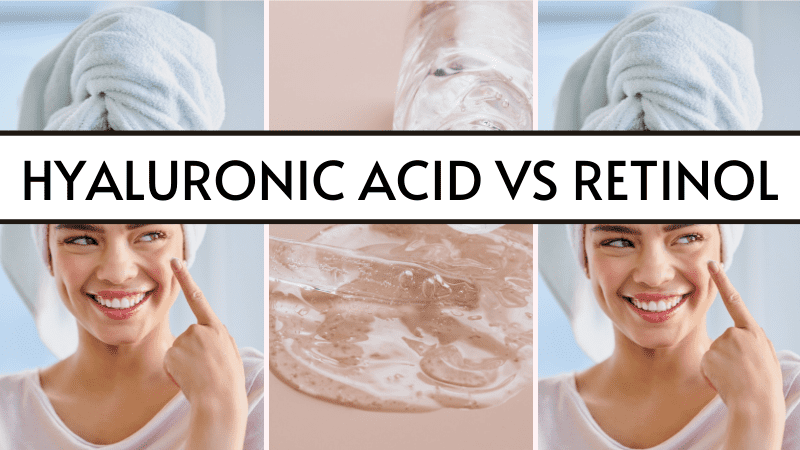
I only recommend products I love and I think you will, too. If you click on links I provide, I may receive a little compensation. Learn more.
Getting confused between hyaluronic acid vs retinol? Don’t worry! Let’s keep this to rest.
If you’re like most people, you probably have a few bottles of skincare products in your bathroom cabinet that you use regularly. But do you know what all of those products really are for? Unfortunately, most people won’t know what they are using or if they should even use these for their skin? So they’ll either buy the latest launch or go by other people’s recommendations.
Two such ingredients are hyaluronic acid and Retinol. We all know that they are hero ingredients in any skincare routine, but we often confuse them with one another. If you do too, don’t worry, you are not alone! In this blog post, we will find out the difference between hyaluronic acid vs Retinol and answer all of your questions and more!
What is hyaluronic acid?
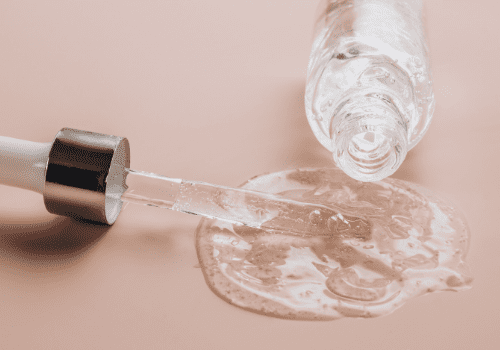
Hyaluronic acid is a natural substance that is found in our skin. It’s what keeps our skin plump, hydrated, and youthful-looking. Unfortunately, our bodies produce less and less hyaluronic acid as we age. This leads to dryness, wrinkles, and a loss of elasticity in our skin.
Topical application of hyaluronic acid can help replenish this important substance’s levels in our skin. Doing so can help reduce the signs of aging and keep our skin looking its best.
Hyaluronic acid basically belongs to a group of humectants that binds to all of the water molecules and traps them in the skin, keeping it hydrated and plump. It also aids in the prevention of all that water from evaporating and leaving the skin dry and dehydrated. In addition, it is a very hydrating ingredient as it can retain up to 1,000 times its weight in water.
Because of this, hyaluronic acid is one of the most popular ingredients to be added to skincare products. It also goes well with other actives like vitamin C, Retinol, AHA/BHA, etc. Turn over any of your skincare products to read their ingredients, and you’ll find this exceptional ingredient in most of them.
Benefits of hyaluronic acid
-Healthy skin: Hyaluronic acid helps keep our skin looking young and healthy by retaining moisture and preventing the formation of wrinkles. It is also effective in treating dry skin, sunburn, and other skin problems.
-Perfect moisturizer for acne: It is actually an excellent hydrator for acne-prone skin that doesn’t tolerate oils or other hydrating products.
-Strengthening skin’s protective barrier: It helps strengthen the skin barrier, which is important since it prevents pathogens and other environmental aggressors from harming the skin.
-Reduced inflammation: Hyaluronic acid can help reduce inflammation in joints, muscles, and other tissues, making it a valuable tool for relieving pain and stiffness.
As you can see, hyaluronic acid offers a wide range of benefits for both our health and beauty. Not only does it help to keep our skin looking young and healthy, but it can also help to relieve pain, inflammation, and stiffness in joints.
With so many potential benefits, it’s no wonder that more and more people are turning to this amazing ingredient for help with their health and beauty needs.
Side effects of hyaluronic acid
While hyaluronic acid is generally safe and well-tolerated, you should be aware of a few potential side effects.
Like, Hyaluronic acid is thought to increase skin permeability and make it more sieve-like in nature, which is why it should be used with a moisturizer to encourage additional water absorption.
Some people may also experience allergic reactions to products containing hyaluronic acid. Symptoms can include redness, itching, swelling, and difficulty breathing. If you experience any of these symptoms after using a product containing hyaluronic acid, stop using the product immediately and seek medical attention if necessary.
What is retinol?
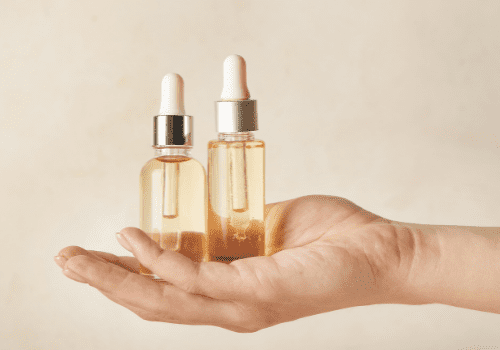
Retinol is a vitamin A derivative that can be used without a prescription, which is why it is found in many skincare products. It helps to reduce the appearance of fine lines and wrinkles and also helps to fade age spots. Retinol can be used on its own or in conjunction with other anti-aging ingredients. But that doesn’t mean that it goes well with other actives like AHA/BHA or vitamin C.
Retinol has become the gold standard skincare ingredient that can treat a variety of skin concerns, including acne, wrinkles, and sun damage, by increasing skin cell turnover and boosting collagen production.
Even though the prescription version of retinoids (an umbrella term for vitamin A derivatives) like Retin A or retinoic acid work fastest, they are skin-drying as well.
If you have sensitive skin, you may want to start with a lower concentration of Retinol in your skincare products. You can also look for retinol products that contain other moisturizing ingredients, such as hyaluronic acid, to help reduce the risk of irritation.
Benefits of retinol
-Anti-aging properties: Retinols are seriously one of the best products you can use for fighting wrinkles and fine lines. You can always start using it in your early 20s.
-Treats acne: Retinol works by unclogging pores and allowing the skin to repair itself, thus reducing swelling and allowing the skin to appear smoother.
-Fights hyperpigmentation: Retinol can help reduce hyperpigmentation by speeding up cell turnover, whether it’s acne spots, sun spots, or age spots.
-Get rid of acne scarring: By improving collagen production, Retinol can also help with acne scarring and enhance skin’s texture.
-Improve skin texture: It can also help get rid of dead skin cells making your skin appear smoother and better for good.
Side effects of retinol
-It can make your skin dry and flaky: One of the most common side effects of Retinol is that it can make your skin dry, red, and flaky. This is because when you first start using Retinol, your skin is going through an adjustment period. To help with this, make sure to use a moisturizer and begin with a lower concentration of Retinol.
-You may experience irritation: Some people may also experience irritation, such as stinging or burning, when using Retinol. If this happens, stop using the product and consult your dermatologist.
-It can make you more sun-sensitive: Retinol also makes your skin more sun-sensitive, so it’s important always to wear sunscreen when using products containing Retinol.
-It can cause redness: Some people may experience redness in their skin after using a retinol product. However, this is usually temporary and should go away within some time.
If you’re experiencing any of these side effects, discontinue use and consult your doctor!
Remember that everyone’s skin is different, so not everyone will experience these side effects. Just be patient, and if you do have any issues, address them with a professional.
Difference between hyaluronic acid and retinol:

Hyaluronic acid is a humectant, which means it attracts and retains moisture. This makes it an excellent ingredient for moisturizers and other skincare products. Hyaluronic acid can also help plump up the skin and reduce the appearance of wrinkles and fine lines.
On the other hand, Retinol is an anti-aging ingredient that helps reduce the appearance of wrinkles and fine lines, as well as sun damage. It also helps to increase cell turnover and boost collagen production.
So what’s the difference between hyaluronic acid vs Retinol? Hyaluronic acid is a moisturizing ingredient, while Retinol is an anti-aging ingredient that helps to reduce wrinkles and fine lines. Hyaluronic acid is also a great ingredient for plumping up the skin, while Retinol can help with sun damage and hyperpigmentation. Both ingredients are beneficial; it just depends on what you’re looking for in a skincare product.
Another difference between the two is that Retinol may take months to show visible results because the process of converting Retinol into retinoic acid by a person’s skin enzymes is slow. Therefore, it takes about six months to actually see some results. Whereas, Hyaluronic acid shows visible results within minutes.
Which is better hyaluronic acid or retinol?
There is much debate over whether hyaluronic acid or Retinol is better for your skin. Hyaluronic acid is a moisture-binding ingredient that can help to keep skin hydrated and plump. Retinol, on the other hand, is an anti-aging powerhouse that can help to reduce the appearance of wrinkles and fine lines. So, which one should you use?
The answer may depend on your skin type. If you have dry or sensitive skin, hyaluronic acid may be a better choice as it will help keep your skin hydrated without irritation. If you are looking for anti-aging properties, Retinol is a good option as it helps to boost collagen production and increase cell turnover.
Ultimately, the best way to decide which ingredient is right for you is to try a few different products and see which one works best. There are many hyaluronic acid and retinol products available, so you are sure to find one that meets your needs.
Hyaluronic acid vs retinol for wrinkles
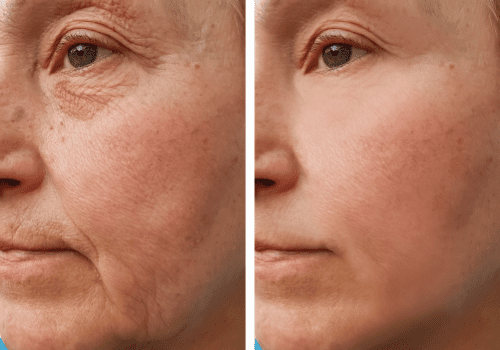
Both hyaluronic acid and Retinol are popular ingredients in wrinkle-fighting products. Hyaluronic acid, on one hand, will temporarily plump the skin, while Retinol will assist you in actually eliminating them permanently.
hyaluronic acid vs retinol for acne
Even though hyaluronic acid is one of the best hydrators for acne-prone skin, Retinol will help unclog the pores, speed up cell turnover and boost collagen production, making it so much better for treating and preventing breakouts as well as acne scars.
hyaluronic acid vs retinol for dark circles
Both hyaluronic acid and Retinol are super great ingredients for dark circles as hyaluronic acid will help keep the under-eye skin hydrated and plump, whereas Retinol can help boost collagen production and increase cell turnover resulting in brightening the dark circles.
can I use hyaluronic acid and retinol together?
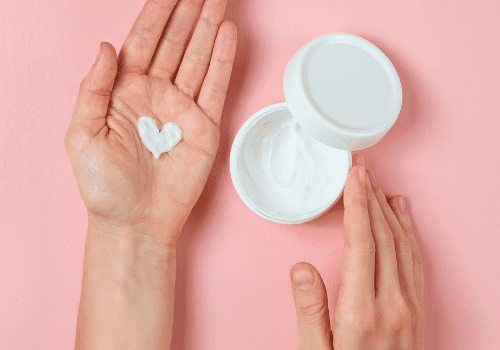
The verdict is still out on whether or not you can use hyaluronic acid and Retinol together. Some people say that it’s okay to do, while others recommend that you avoid using the two products at the same time.
Hyaluronic acid is known for its ability to hydrate skin, while Retinol is a vitamin A derivative that helps improve skin tone and texture. When used together, they could potentially provide even more benefits than when used separately since Hyaluronic acid may help minimize certain side effects of Retinol like dry skin and irritation.
Retinol is photosensitive (which means it degrades in the sun); therefore, applying it once a day at night is advised. Use hyaluronic acid twice a day to keep the skin’s barrier strong and plum. By using both products together, you’ll keep your skin looking healthy and youthful!
which comes first retinol or hyaluronic acid?
Do you apply Retinol or hyaluronic acid first when combining both of them in your routine?
Since Retinol is a potent ingredient, it would perform better when used before any other product and retain on the skin for some time to kick start cell renewal and stimulate collagen synthesis.
Using hyaluronic acid over it after 10-30 minutes will not only hydrate the skin and relieve the drying and flaking but will also form a physical protective barrier that will keep the skin fully hydrated and lustrous all day.
However, some people with more sensitive skin types may find Retinol a little harsh and irritating at first, so they can always use a hydrating moisturizer or serum first and then apply Retinol. This dilutes the Retinol with another product, making it comfortable enough.
So the final verdict is that it doesn’t really matter if you use Retinol first or hyaluronic acid. Hyaluronic acid can help increase the effectiveness of Retinol and vice versa. So if you want the most benefit from Retinol, use it first but if that doesn’t suit your skin, use it after. It really doesn’t make a big difference.
can retinol make you look older?

Retinol is a powerful ingredient that can help to reduce the appearance of wrinkles and fine lines. However, some people may find that Retinol can actually make them look older. This is because Retinol can cause the skin to dry out and become irritated easily. So it is very important to keep the skin well hydrated while using Retinol to avoid looking older.
can you use hyaluronic acid every day?
Yes, you can use hyaluronic acid every day. Hyaluronic acid is a very gentle ingredient that is safe for all skin types to use. Hyaluronic acid will help to keep the skin hydrated and plump.
If you have dry or sensitive skin, you may want to start by style=”text-decoration: underline;”>using hyaluronic acid style=”text-decoration: underline;”>using hyaluronic acid once or twice a week and gradually increase the frequency as your skin becomes more tolerant.
Conclusion to Hyaluronic acid vs retinol
So, which is better for you? Hyaluronic acid vs retinol? The answer isn’t so simple. Both ingredients have unique benefits that can make a real difference in the appearance of your skin. For example, Retinol may be more effective at treating wrinkles and age spots, while hyaluronic acid can help to improve hydration and plumpness.
Ultimately, it’s important to choose an ingredient that will work best for your individual skin type and needs. If you’re not sure where to start, consult with a skincare professional who can help you create a personalized routine using both of these powerful ingredients.
Related articles to hyaluronic acid vs retinol
- Retinol Vs Retin A: Which Is Better For You?
- How To Layer The Ordinary Products: Your Fuss Free Guide
- 10 Best The Ordinary Products For Acne Scars That Are Magical
- Why Your Skin Feels Tight? 8 Solid Reasons And Solutions!
- Micellar Water Vs Toner: Which Is Better?
- Lip Balm Vs Chapstick: Which Is Better? (You’ll Be Shocked!)


Retinol’s effectiveness can be improved with hyaluronic acid, and vice versa. Therefore, apply Retinol initially if you want to get the greatest benefit from it; if that doesn’t work for your skin, try it later. It hardly makes a difference at all. Thank you so much!
After 10-30 minutes, apply hyaluronic acid over it to hydrate the skin and ease the flaking and drying, as well as establish a physical protective barrier that will keep the skin hydrated and lustrous all day. Thank you!